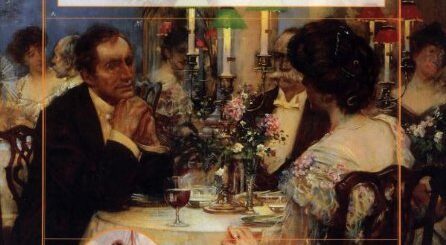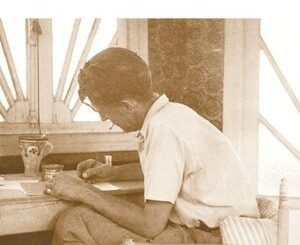I, Fellini by Charlotte Chandler
I was lucky enough to live in Rome in the late 1960s for nearly two years, city of eternal magic. I had a job as an assistant director in the movies – a gopher, basically, nothing important, but it gave me a chance to live and breathe cinema.
Rome was quite a circus back then, and the circus master was the famous film director, Federico Fellini. As always in Rome, there was a colorful ex-patriot set, an international crowd that had come to Italy to study art, or for one thing or another – perhaps only to drink cocktails on the Via Veneto. It seemed like half of them ended up as extras in the Satyricon, Fellini’s saga of ancient Rome, which was being filmed at Cinecittá in a chaotic fashion throughout much of 1967. I remember an African American from New York, Teddy, who used to sell hashish on the Via Veneto; Fellini hired Teddy to play a slave and soon all Teddy could talk about was Fellini’s hypnotic eyes, how he used to dream of them at night. The French actress Anouk Aimee, the female lead of 8 1/2, told me later that all of Fellini’s actors felt the same way, from Marcello Mastrioianni down to the smallest bit player. Fellini, who died in 1993, was one of the most charismatic figures of 20th Century art and fascinated everyone who met him.
Fortunately, you too can meet this most intriguing man through the courtesy of American author, Charlotte Chandler, who tape-recorded a series of conversations with Fellini over a period of fourteen years and organized her material in a wonderful book, I, Fellini – Fellini in his own words, as close to an autobiography as the great Italian director was ever to write. The book follows Fellini’s career from childhood to his early years as a cartoonist, a writer, and finally the writer/director of films that made him famous: La Strada, The Nights of Cabiria, La Dolce Vita, 8 1/2, Juliet of the Spirits, Satyricon, Amarcord, and more.
Today “Felliniesque” describes a certain way of looking at life, a riotous imagery of dreams, a world of clowns and surreal extravagance set to music with the sweet, sad tunes of Nina Rota, the great Italian composer . . . and of course we can’t forget Fellini’s suave leading man, Marcello Mastrioianni, who moved through this world in perfectly tailored Italian suits, the ultimately alienated yet romantic modern man.
Everyone who loves film, loves Fellini. But in Charlotte Chandler’s book we see that Fellini’s life was not always easy. Money was always a problem – money to make films, money to live. La Dolce Vita was the only of his movies that ever actually made a profit, but even here, Fellini himself did not benefit, after signing away his rights in order to get the movie financed. Eventually, Fellini and his wife, the actress Guilietta Masina, had to sell their beach house in Fregene outside of Rome to pay back taxes. They ended up with nothing except their love and their vision, and the love of everyone who ever knew them, or who had ever seen their work.
Health was Fellini’s final battle; Federico and Guilietta died within a short period of each other after a lifetime of creativity, only a few months after receiving an honorary Academy Award in Los Angeles. Sadly, Federico had not wanted to attend the Academy Award ceremony because he didn’t want people to see how ill he was, but he thought it might help him get financial backing for one more venture. Movie makers, however fine, always need to have a bit of the hustler in them to come up with the budget to start shooting.
I, Fellini is a wise and deeply moving story of a great and extremely human man. This is a book that will enrich your life.
- National Epilepsy Day 2023:Common Signs And Symptoms - November 17, 2023
- Top 10 Cosmetic Packaging Designers in the USA - April 12, 2023
- Luxury Website Designers: The Ultimate Guide to Creating a High-End Website - April 10, 2023


